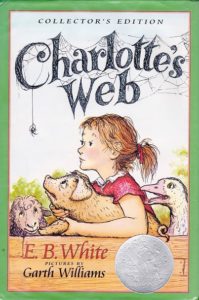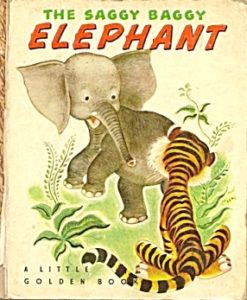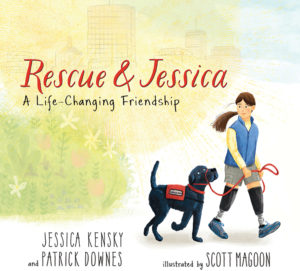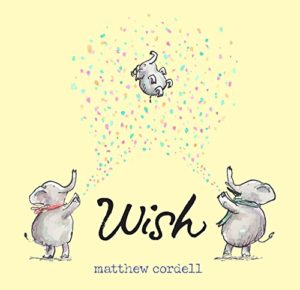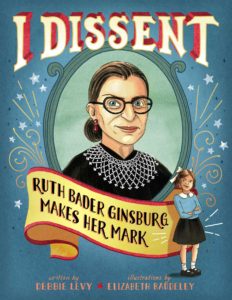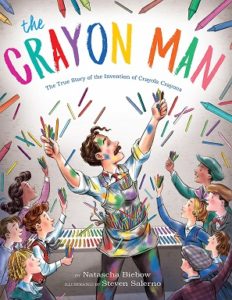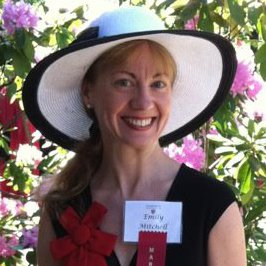 This month’s Industry Insider Interview is with Emily Mitchell, an agent at Wernick & Pratt Agency. Emily began her career at Sheldon Fogelman Agency where she says she “handled submissions, subsidiary rights, and coffee.”
This month’s Industry Insider Interview is with Emily Mitchell, an agent at Wernick & Pratt Agency. Emily began her career at Sheldon Fogelman Agency where she says she “handled submissions, subsidiary rights, and coffee.”
Emily then spent eleven years at Charlesbridge Publishing as senior editor, contracts manager, and director of corporate strategy. Things get wonky from there (details on that below) before she eventually found her way to Wernick & Pratt Agency, where she’s been since 2013.
But that’s all just the stock bio material. Let’s gamify this getting-to-know Emily thing by playing 9 Biographical Truths and 1 Whopper! Ready?
Emily:
- is the shortest person in her family.
- considers herself a “terrible eater.”
- unironically believes Grease 2 to be a Top 3 movie.
- has a playlist that’s an even balance between show tunes and Kesha.
- thinks that in her heart of hearts, she’s a twelve-year-old kid.
- ran five overnight, 200-mile relay races before she got old and lazy.
- can juggle any fruit smaller than grapefruit (she has tiny hands).
- regularly conflates loungewear with sleepwear, especially in the past year.
- has a fave gadget—a desktop coffee mug warmer.
- enjoys an ALL CAPS relationship with the Cubs and Red Sox.
Here are some URLs to get to know Emily and her agency even more, if you’re so inclined. But let’s delay no longer. It’s time for the interview!
RVC: Let’s deal with the career elephant in the room. Not only do you have an MBA, but you left publishing at one point to join corporate America. What the *!$#^ happened?
EM: I had a little midlife crisis in my early/mid thirties. I got my MBA and stuck with publishing for a while, but I was determined to branch out—if only to make some more money, and to prove to myself that the skills I’d developed in publishing really were transferable to other industries. I ended up doing marketing communications strategy for a large printing company.
I liked my coworkers, and the work was fine, with some new challenges I enjoyed. But the job and the industry didn’t inspire or motivate me the way publishing did. And then I got laid off. Wheeee!
RVC: It happens to the best of us. I’m glad you found your back to the book world.
 EM: Me, too! Fortunately, my former coworkers from my first publishing job had since started their own agency, and were willing to take me on.
EM: Me, too! Fortunately, my former coworkers from my first publishing job had since started their own agency, and were willing to take me on.
RVC: In some of your bios, you claim that you were supposed to be a teacher. What’s the story there?
EM: I grew up in a family and a community full of teachers. I really didn’t understand till I was like nine that there were, in fact, other jobs in the world.
I went to college expecting to become a high school English teacher, and after undergrad, went directly into a master’s program in secondary English ed. I graduated in the middle of a school year and moved to the NYC area to be with my fiancé (now husband). I figured I’d get a job for a few months, and then look for a teaching position for the following school year. Instead, I found a job at a literary agency specializing in children’s books, and that was that.
RVC: Let’s talk agenting. What does a typical day look like for you?
EM: *snorty laughter* There is no typical day. Most days include a bunch of emailing: follow-ups on submissions, follow-ups on contracts, follow-ups on permissions. Then there’s redlining contracts, working on sub lists and pitch letters, and drafting foreign rights agreements and permission letters. Sometimes I have client calls or editor calls, and I have regular Skypes with my colleagues a few times a week. If I’m lucky, there’s reading and commenting on client manuscripts, and/or reviewing non-client submissions.
Sometimes, there’s also handling tech issues (I am the IT department), making website updates (I am the webmaster), waiting on hold with the IRS (I am the foreign-tax-exemption filer), and posting client news online (I am the social media manager). Working at a small company means we all wear many hats.
RVC: Wow!
EM: Oh, and there’s also normal life stuff, like doing laundry and taking the dog out and getting a kid to the orthodontist and helping with musical rehearsals and going to the post office and watching the other kid’s softball game and putting out various fires in my volunteer life. I would be nowhere without my phone, which lets me be reachable and work-able even when I’m not at my desk.
RVC: That’s it. I AM impressed. But I’m curious–what’s your agenting style like in terms of how you deal with current and prospective clients?
EM: I’m much more of a writer than a talker—I do most of my communications with my clients over email. That said, I’m always happy to hop on the phone with a client when they need it.
Apart from that, I try to adjust my style to whatever the client needs. I have some clients who don’t want any updates about their projects on submission: once it’s out of their hands and in mine, they don’t want to hear anything unless and until we have an offer. For other clients, I send regular submissions check-ins, and we brainstorm ideas for other editors and imprints together. Some people have lots of questions about their contracts; some people just sign and return with little fanfare. I try to be flexible.
RVC: If you had to summarize the most important thing you’ve learned about agenting, what would it be?
EM: Don’t lie. I mean—I’m not a lying person anyway, or at least I try not to be. But I have found my strongest negotiating tool is just to be honest and clear about we want and why. I hope that’s my reputation with editors and contracts departments, and I think my clients appreciate knowing that I’m neither sugarcoating nor catastrophizing whatever news I have for them.
RVC: You recently scored a multi-book deal for the Arithmechicks. What do you like most about that series?
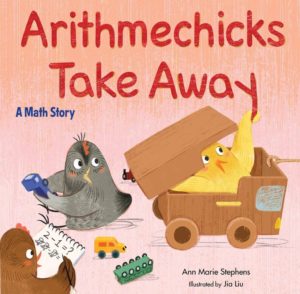 EM: Honestly, the title sold itself. Chickens! Math! ARITHMECHICKS! Ann Marie Stephens uses her experience as a first-grade teacher to make books that are so engaging, and so clearly trade (as opposed to textbooks or educational books). They’re just terrific.
EM: Honestly, the title sold itself. Chickens! Math! ARITHMECHICKS! Ann Marie Stephens uses her experience as a first-grade teacher to make books that are so engaging, and so clearly trade (as opposed to textbooks or educational books). They’re just terrific.
RVC: How do you go about crafting a pitch for a series? What’s your strategy?
EM: Arithemechicks notwithstanding, I don’t actually do a ton of series or multi-book deals, at least for picture books. I’ll often sell a book that has series potential, which I’ll mention in the pitch, but in my experience, publishers are hesitant to make a big bet on a full series off the bat. They’d rather buy one or two and see how those do before acquiring more.
I’ve also found recently that some publishers are open to multi-book deals where the subsequent books are untitled or unspecified—an open contract, essentially. While this can demonstrate a commitment on the publisher’s part to support the author for a medium- to long-term, in practice, it can end up being more of a burden than a boon. There’s not necessarily urgency on the publisher’s part to line up a manuscript for that second or third book, so the author ends up submitting story after story that the publisher can reject, which can stall momentum or cast a pall on the relationship. It’s one of those things where both parties go into it with the best of intentions, but the outcomes can be less than ideal.
RVC: A good number of OPB readers are writers who want to land an agent. What’s a question or two most don’t ask prospective agents…but they should?
EM: I think agents and authors need to have clear expectations going into a working relationship. How long could it take to sell a project? What are the likely terms for a picture book acquisition? How many books can a client reasonably work on in a year? What happens if an agent doesn’t sell a project quickly, or at all?
RVC: That’s a good list of questions, for sure. Readers? Take note!
EM: Publishing is a deeply weird industry, with lots of historical practices that don’t really make sense anymore. It’s also an extremely slow industry: books acquired today aren’t likely to be published before 2023. (My MBA classmates who work in high-tech and finance were flummoxed when I explained that our time-to-market was measured in years, not weeks or months.)
RVC: I, too, am flummoxed by this. Clearly we have the technology and infrastructure to go from manuscript to finished book in a few months, or less. Why not make that the norm? Why insist on the wait?
EM: Well, part of the waiting for picture books is art: illustrators need time to create and perfect their vision for the text. Another part is production: most picture books are printed in Asia, so it takes time to get books physically to market on container ships. But it’s true: in publishing, we wait All The Time—for responses to submissions, for draft contracts to arrive, for revisions to be done, for monies to hit the bank account, etc.
People hear lots of buzz about high-stakes auctions and rapid-fire acquisitions and books being crashed to market, but that’s not the reality for most books or most creators. We don’t do ourselves any favors by setting our expectations based on the latest deal announcement or Twitter thread.
RVC: How important is it for picture book writers to have an agent these days?
EM: It’s more important than it used to be, as houses have consolidated even further, and more imprints are closed to submissions. It’s still not 100% necessary, but having an agent makes it easier to get your work seen by editors, and gives you protection and perspective when it comes to contracts.
RVC: Brag time. What’s a picture book project you’re really excited about?
EM: This is the “who is your favorite kid” question, isn’t it?
RVC: Yes, indeedy!
EM: I can’t possibly pick just one. I’ll cheat and name a handful of upcoming 2022 titles:
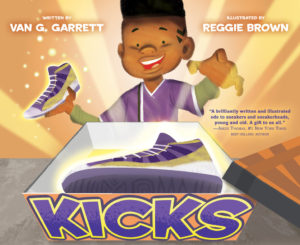 Van Garrett’s debut, Kicks (Versify), illustrated by Reggie Brown
Van Garrett’s debut, Kicks (Versify), illustrated by Reggie Brown- Richard Ho’s The Year of the Cat (Greenwillow), illustrated by Jocelyn Li Langrand
- Caron Levis’s Feathers Together (Abrams), her third collaboration with illustrator Charles Santoso
- Traci Sorell’s Being Home (Kokila), illustrated by 2021 Caldecott Medalist Michaela Goade
RVC: Two last questions for this part of the interview. If I asked Marcia (Wernick) and Linda (Pratt) what they thought your agenting secret weapon was, they’d say…
EM: I think they appreciate my experience working at a publisher. I’ve got behind-the-scenes knowledge and an understanding of the “other side” of the negotiating table, which can be helpful in sorting through certain issues.
RVC: What’s your ACTUAL agenting secret weapon?
EM: A painful aversion to an inbox that’s more than one screen full (i.e., if I have to scroll to see all the messages, I AM BEHIND AND THAT IS BAD).
RVC: Okay, Emily. Here we go—it’s the LIGHTNING ROUND! The questions will zip. The answers will zap. Are you prepared?
EM: Zop.
RVC: Best place in Massachusetts to get a Fluffernutter?
EM: Fluffernutters are disgusting. Our go-to apple-picking place is Carlson Orchards in Harvard, MA. They have excellent cider donuts and hard cider.
RVC: A theme song that describes your agenting life right now?
EM: “BusyBusyBusy” by Sandra Boynton, from the brilliant Philadelphia Chickens.
RVC: You’ve got four extra Hoodsie Cups. Which four figures from the world of picture books gets invited over for an ice cream social?
EM: James Marshall, Frances the badger, Jan Thomas’s Fat Cat, and Ashley Bryan.
RVC: A recent picture book that really caught your attention?
EM: Since COVID kept our library closed to the public till just recently, I haven’t had the chance to do a lot of serendipitous browsing. That said, I’m intrigued by Home Is in Between by Mitali Perkins, illustrated by Lavanya Naidu.
RVC: Five words that sum up your picture book philosophy?
RVC: A favorite line from a recent picture book you repped?
EM: “Except when the drag coefficient causes the end of fun.” From Frank Dormer’s forthcoming. We Have a Playdate (Abrams).
RVC: Thanks so much, Emily! Oh, and for those who wanted to know what the Whopper of a Lie was in the introductory bio, it’s the juggling (though she does have tiny hands). No joke!


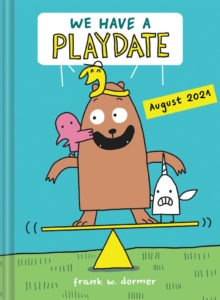
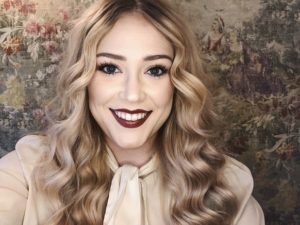
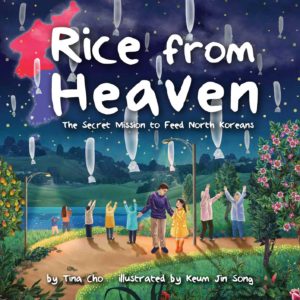
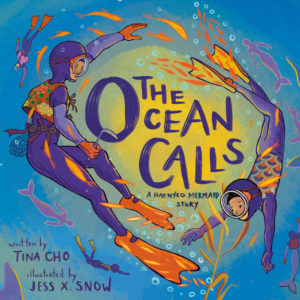
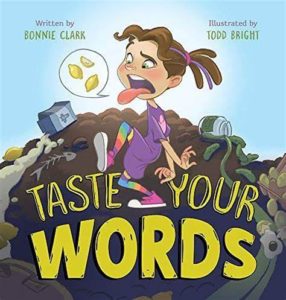
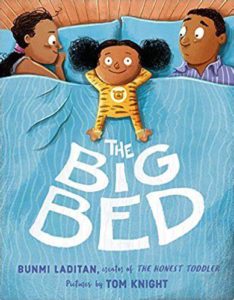
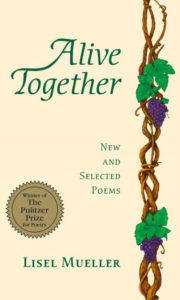
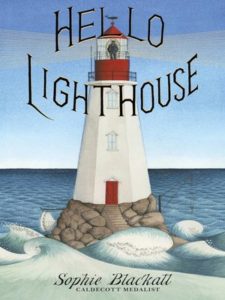
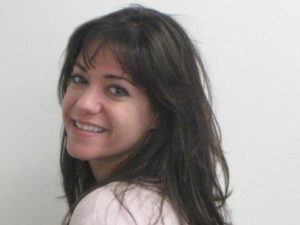 Let me introduce you to literary agent Liza Fleissig, who opened
Let me introduce you to literary agent Liza Fleissig, who opened 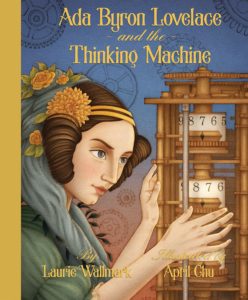
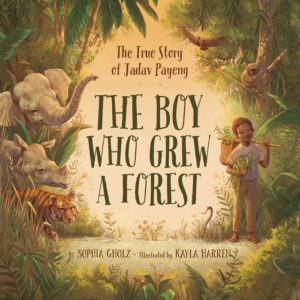
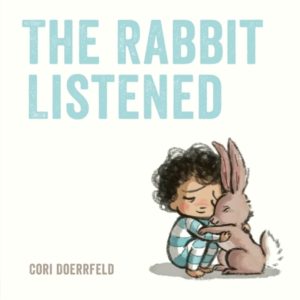
 This month, we welcome Stephen Barr to the
This month, we welcome Stephen Barr to the 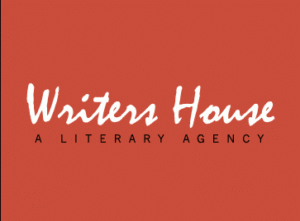
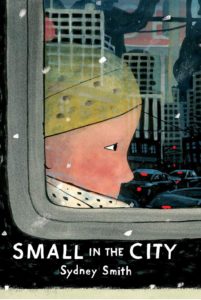
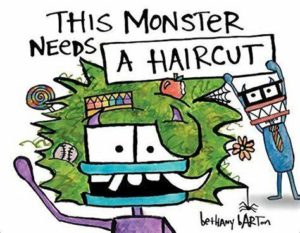
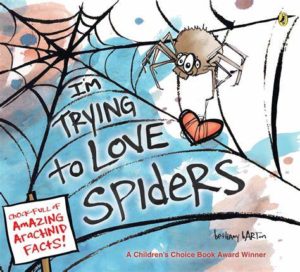
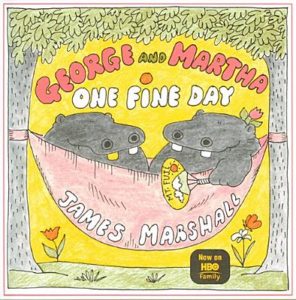
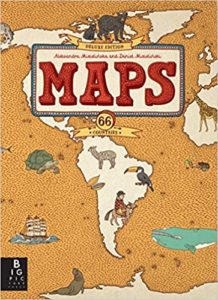
 While
While 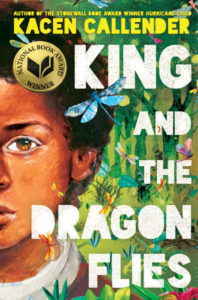
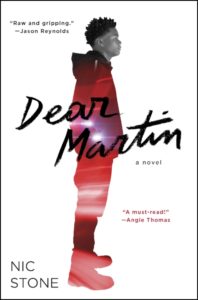
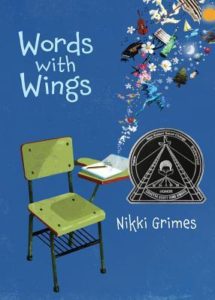
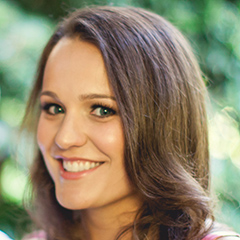 Let’s give a big
Let’s give a big 